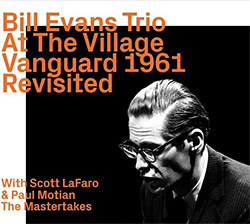
Reissuing and remastering two seminal albums on the Riverside label from pianist and composer Bill Evan's trio with double bassist Scott LaFaro and drummer Paul Motian — Sunday At The Village Vanguard and Waltz for Debby — yielding jazz standards and helping define the modern jazz trio through impressive technical underpinnings and lyrical sophistication.
In Stock
Quantity in Basket: None
Log In to use our Wish List
Shipping Weight: 3.00 units
EU & UK Customers:
Discogs.com can handle your VAT payments
So please order through Discogs
Sample The Album:
Bill Evans-piano
Scott LaFaro-double bass
Paul Motian-drums
Click an artist name above to see in-stock items for that artist.
UPC: 752156115922
Label: ezz-thetics by Hat Hut Records Ltd
Catalog ID: ezz-thetics 1159
Squidco Product Code: 33575
Format: CD
Condition: New
Released: 2023
Country: Switzerland
Packaging: Cardboard Gatefold
Recorded at The Village Vanguard, in NYC, in June 25th, 1961.
Recorded at The Village Vanguard, New York City, June 25, 1961.
Recorded at The Village Vanguard, New York City, June 25, 1961.
Sunday at the Village Vanguard originally released in 1961 as a vinyl LP on the Riverside label with catalog code RLP 376.
Waltz for Debby originally released in 1962 as a vinyl LP on the Riverside label with catalog code RLP 9399.
"Liner notes generally avoid referencing current affairs, for the good reason that what is front page news when the notes are being written may be gone and forgotten by the time the album is released. But there are exceptional circumstances, and here is one of them.
On his father's side, Bill Evans was of Welsh heritage, and on his mother's side, Russian, or rather Ukrainian, the two countries during his lifetime often being conflated as a result of Ukraine's on-off history as a Russian-Soviet vassal state. We are concerned here, as you may have surmised, with Evans' Ukrainian heritage. He wrote that he would have liked to explore this at first hand, and he had two opportunities to do so, during proposed visits to the Soviet Union with his trio in the years before Ukraine regained its independence in 1991.
But fate intervened on both occasions. The first was in 1969, and Evans was actually going through departure protocols at Kennedy Airport, bound for Moscow, when he was busted for possession of heroin. He spent a day or two in jail before his manager, Helen Keane, got him released on bail and booked on a get-out-of-jail-free methadone programme. It is fortunate, perhaps, that Evans did not make it to Moscow, to be busted there, for the Soviet Union's narcotics laws were as barbarous then as Russia's are now.
The second opportunity came in late 1980. But in response to the Soviet Union's bloody invasion of Afghanistan just a few weeks before the planned visit, Evans felt compelled to withdraw. In an open letter to Down Beat magazine, he set out the arguments for and against fulfilling the engagement. After acknowledging that there was a case for taking his cultural message to the Soviet Union, in tacit solidarity with regime opponents, he concluded the letter thus: "[But] to perform there voluntarily, after all, is to walk passively in the atmosphere of the degradation of the human spirit. My gesture will have little or no significance, but I follow my code and am at peace with myself." A few weeks later, Evans passed.
As history relates, beautiful music has sometimes been created by monstrous men. But even so, as is also the case with Evans' close contemporary, sometime colleague, and fellow shaman, John Coltrane, it is impossible to conceive of Evans' music being created by anyone bereft of moral integrity and love of humanity. The same might be said of jazz's first globally acknowledged shaman, Louis Armstrong, of whom Duke Ellington said: "He was born poor, died rich, and never hurt anyone along the way." Evans was not born poor, and heroin and cocaine ensured he did not die rich, but he too never hurt anyone along the way (other than himself).
There are numerous stories testifying to Evans' good character, both from fans who rocked up to ask for his autograph between sets, and were invariably treated with courtesy, and from people who knew him well and for long periods. Two such testimonies will suffice. In 1989, Orrin Keepnews, for seven years Evans' producer at Riverside, and later his producer at Milestone, who had worked with a broad spectrum of the human species, wrote: "Bill Evans was an honorable man and a sincerely dedicated artist - pretty remarkable accomplishments for a junkie. He kept his promises, performed as scheduled, and without exception came up with musically sound and valid concepts."
In 1995, Helen Keane, Evans' collaborator from 1963 until he passed in 1980, described him with an economy of words of which Evans the pianist would have approved: "Bill was a gentle person, but very strong."
Keane was talking about Evans' moral strength, but she could equally well have been referring to the way he, like Coltrane and Armstrong, rose above the hostility he faced at points in his career, and how he responded with equanimity even to personal attacks. In 1958, for instance, Evans spent around seven months in Miles Davis' sextet, where he frequently encountered what he called "silent treatment" from audiences who objected to a white man replacing Red Garland in the otherwise African American line-up. Evans' solos would be met with tepid applause or silence. It must have been hurtful, but Evans, who in the late 1950s lived with an African American woman (Peri Cousins, the dedicatee of his tune "Peri's Scope"), endured.
Evans took criticism on the chin, too. Paul Motian once remarked on how hard Scott LaFaro could be on Evans: "If he didn't think the music sounded right, if it was good but not perfect, he'd say to Bill, 'Man, you're just fucking up the music. Go look at yourself in the mirror.'" Whether LaFaro was referring to Evans' playing or his physical condition - by 1960, heroin had already ravaged his once athletic body - is not clear. But again, Evans endured.
Mention of Motian and LaFaro brings us to this disc, perhaps belatedly. But what more needs to be said about the music? What more, usefully, can be said about it? It is as close to perfection as makes no difference, and as close to immortality, too, and if you are still reading these notes, you will not need to be told why."-Chris May, June, 2023.

The Squid's Ear!
Artist Biographies
• Show Bio for Bill Evans "William John Evans (August 16, 1929 - September 15, 1980) was an American jazz pianist and composer who worked primarily as the leader of his trio. His use of impressionist harmony, interpretation of traditional jazz repertoire, block chords, and trademark rhythmically independent, "singing" melodic lines continues to influence jazz pianists today. Born in Plainfield, New Jersey, United States, he was classically trained at Southeastern Louisiana University and the Mannes School of Music, in New York City, where he majored in composition and received the Artist Diploma. In 1955, he moved to New York City, where he worked with bandleader and theorist George Russell. In 1958, Evans joined Miles Davis's sextet, which in 1959, then immersed in modal jazz, recorded Kind of Blue, the best-selling jazz album ever. In late 1959, Evans left the Miles Davis band and began his career as a leader, with bassist Scott LaFaro and drummer Paul Motian, a group now regarded as a seminal modern jazz trio. In 1961, two albums were recorded at an engagement at New York's Village Vanguard jazz club, Sunday at the Village Vanguard and Waltz for Debby; a complete set of the Vanguard recordings on three CDs was issued decades later. However, ten days after this booking ended, LaFaro died in a car accident. After months of seclusion, Evans reemerged with a new trio, featuring bassist Chuck Israels. In 1963, Evans recorded Conversations with Myself, a solo album produced with overdubbing technology. In 1966, he met bassist Eddie Gómez, with whom he worked for the next 11 years. During the mid-1970s Bill Evans collaborated with the singer Tony Bennett on two critically acclaimed albums: The Tony Bennett/Bill Evans Album (1975) and Together Again (1977). Many of Evans's compositions, such as "Waltz for Debby" and "Time Remembered", have become standards, played and recorded by many artists. Evans received 31 Grammy nominations and seven awards, and was inducted into the DownBeat Jazz Hall of Fame." ^ Hide Bio for Bill Evans • Show Bio for Scott LaFaro "Rocco Scott LaFaro (April 3, 1936 - July 6, 1961) was an American jazz double bassist known for his work with the Bill Evans Trio. LaFaro broke new ground on the instrument, developing a countermelodic style of accompaniment rather than playing traditional walking basslines, as well as virtuosity that was practically unmatched by any of his contemporaries. Despite his short career, he remains one of the most influential jazz bassists, and was ranked number 16 on Bass Player magazine's top 100 bass players of all time." ^ Hide Bio for Scott LaFaro • Show Bio for Paul Motian "Stephen Paul Motian (March 25, 1931 - November 22, 2011) was an American jazz drummer, percussionist, and composer. Motian played an important role in freeing jazz drummers from strict time-keeping duties. He first came to prominence in the late 1950s in the piano trio of Bill Evans, and later was a regular in pianist Keith Jarrett's band for about a decade (c. 1967-1976). Motian began his career as a bandleader in the early 1970s. Perhaps his two most notable groups were a longstanding trio of guitarist Bill Frisell and saxophonist Joe Lovano, and the Electric Bebop Band which featured the drummer working mostly with younger musicians doing interpretations of bebop standards. Motian was born in Philadelphia, Pennsylvania, and raised in Providence, Rhode Island. He is of Armenian descent. After playing guitar in his childhood, Motian began playing the drums at age 12, eventually touring New England in a swing band. During the Korean War he joined the Navy. Motian became a professional musician in 1954, and briefly played with pianist Thelonious Monk. He became well known as the drummer in pianist Bill Evans's trio (1959-64), initially alongside bassist Scott LaFaro and later with Chuck Israels. Subsequently, he played with pianists Paul Bley (1963-64) and Keith Jarrett (1967-76). Other musicians with whom Motian performed and/or recorded in the early period of his career included Lennie Tristano, Warne Marsh, Lee Konitz, Joe Castro, Arlo Guthrie (Motian performed briefly with Guthrie in 1968-69, and performed with the singer at Woodstock), Carla Bley, Charlie Haden, and Don Cherry. Motian subsequently worked with musicians such as Marilyn Crispell, Bill Frisell, Leni Stern, Joe Lovano, Alan Pasqua, Bill McHenry, Stéphan Oliva, Frank Kimbrough, Eric Watson and many more. Later in his career, Motian became an important composer and group leader, recording initially for ECM Records in the 1970s and early 1980s and then for Soul Note, JMT, and Winter & Winter before returning to ECM in 2005. From the early 1980s he led a trio featuring guitarist Bill Frisell and saxophonist Joe Lovano, occasionally joined by bassists Ed Schuller, Charlie Haden, or Marc Johnson, and other musicians, including Jim Pepper, Lee Konitz, Dewey Redman and Geri Allen. In addition to playing Motian's compositions, the group recorded tributes to Thelonious Monk and Bill Evans, and a series of Paul Motian on Broadway albums, featuring original interpretations of jazz standards. Despite his important associations with pianists, Motian's work as a leader since the 1970s rarely included a pianist in his ensembles and relied heavily on guitarists. Motian's first instrument was the guitar, and he apparently retained an affinity for the instrument: in addition to his groups with Frisell, his first two solo albums on ECM featured Sam Brown, and his Electric Bebop Band featured two and occasionally three electric guitars. The group was founded in the early 1990s, and featured a variety of young guitar and saxophone players, in addition to electric bass and Motian's drums, including saxophonists Joshua Redman, Chris Potter, Chris Cheek, and Tony Malaby, and guitarists Kurt Rosenwinkel, Brad Shepik, Wolfgang Muthspiel, Steve Cardenas, Ben Monder, and Jakob Bro. In 2011 Motian featured on a number of new recordings, including Live at Birdland (with Lee Konitz, Brad Mehldau and Charlie Haden), Samuel Blaser's Consort in Motion, No Comment by Augusto Pirodda, and Further Explorations with Chick Corea and Eddie Gómez. Bill McHenry's Ghosts of the Sun was released - by coincidence - on the day of Motian's death. Motian's final album as bandleader was The Windmills of Your Mind, featuring Bill Frisell, Thomas Morgan and Petra Haden. Motian died on November 22, 2011 at New York's Mount Sinai Hospital of complications from myelodysplastic syndrome." ^ Hide Bio for Paul Motian
1/20/2026
Have a better biography or biography source? Please Contact Us so that we can update this biography.
1/20/2026
Have a better biography or biography source? Please Contact Us so that we can update this biography.
1/20/2026
Have a better biography or biography source? Please Contact Us so that we can update this biography.
Track Listing:
1. Gloria's Step 6:10
2. My Man's Gone Now 6:20
3. Solar 8:48
4. Alice In Wonderland 8:33
5. All Of You 8:17
6. Jade Visions 3:45
7. My Foolish Heart 4:52
8. Waltz For Debby 6:55
9. Detour Ahead 7:33
10. My Romance 7:10
11. Some Other Time 5:01
12. Milestones 6:33
Hat Art
Improvised Music
Jazz
Melodic and Lyrical Jazz
Piano Trio (Piano Bass Drums)
Trio Recordings
NY Downtown & Metropolitan Jazz/Improv
Search for other titles on the label:
ezz-thetics by Hat Hut Records Ltd.

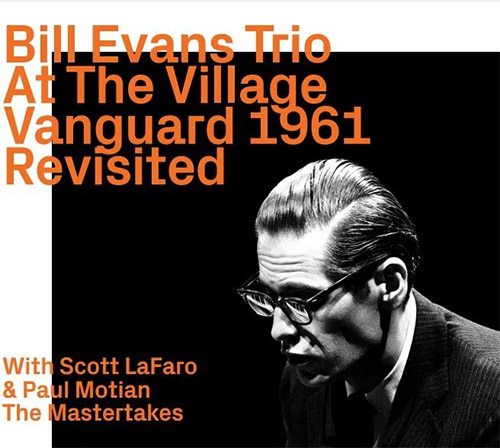

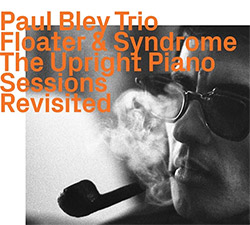




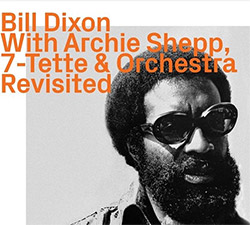
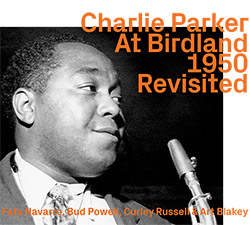



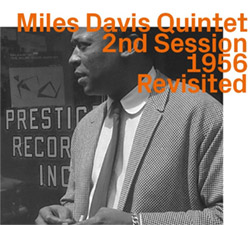

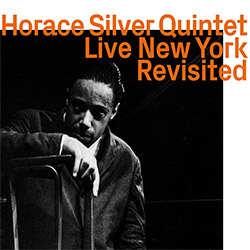
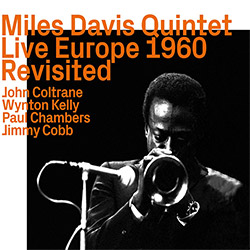
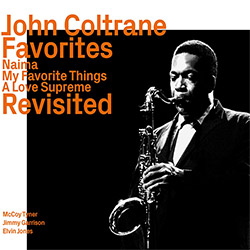

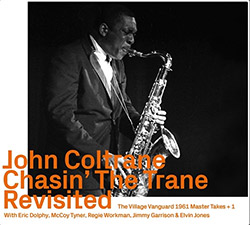
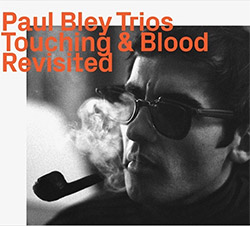


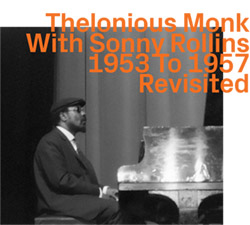

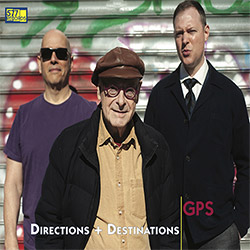
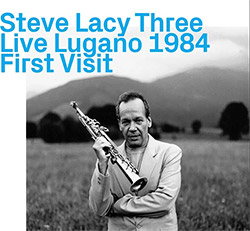
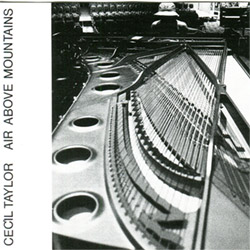

![Fagaschinski, Kai: Aerodynamics [VINYL 2 LPs]](https://www.teuthida.com/productImages/misc4/36992.jpg)
![Allbee, Liz: Breath Vessels [VINYL]](https://www.teuthida.com/productImages/misc4/37012.jpg)
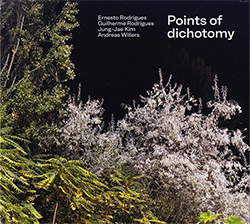
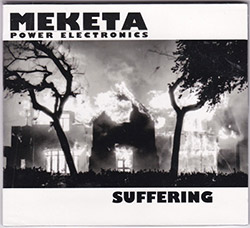


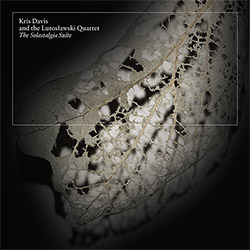
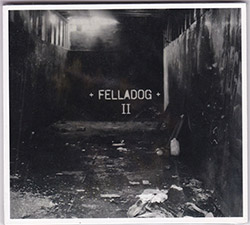


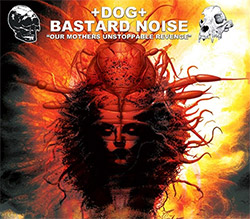



![Parker, Evan / Andrea Centazzo: Bullfighting On Ice! Live In Padova 1977 [VINYL]](https://www.teuthida.com/productImages/misc4/37064.jpg)
![Curran, Alvin / Andrea Centazzo / Evan Parker: Real Time [VINYL]](https://www.teuthida.com/productImages/misc4/37065.jpg)
![Curran, Alvin / Andrea Centazzo / Evan Parker: Real Time Two [VINYL]](https://www.teuthida.com/productImages/misc4/37066.jpg)

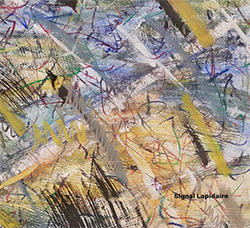

![Rodrigues, Ernesto / Jung-Jae Kim / Guilherme Rodrigues / Eric Bauer / Stephen Flinn: 5 In The Afternoon [2CDs]](https://www.teuthida.com/productImages/misc4/36957.jpg)

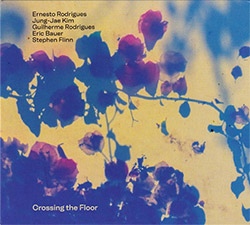





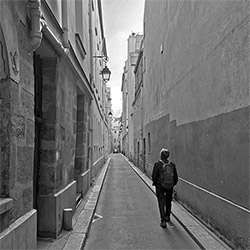
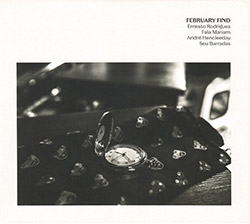


![Evans, Peter / Being & Becoming: Ars Ludricra [VINYL + DOWNLOAD]](https://www.teuthida.com/productImages/misc4/37026.jpg)

![Coley, Byron / Mats Gustafsson / Thurston Moore: Now Jazz Now: 100 Essential Free Jazz & Improvisation Recordings (1960-80) [BOOK]](https://www.teuthida.com/productImages/misc4/36932.jpg)

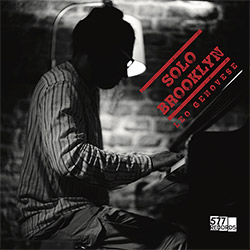
![HobbyHouse (Mia Dyberg / Axel Filip): HobbyHouse [CD + DOWNLOAD]](https://www.teuthida.com/productImages/misc4/36944.jpg)
![Mines, Kelsey / Erin Rogers: Scratching At The Surface [CD + DOWNLOAD]](https://www.teuthida.com/productImages/misc4/36945.jpg)
![Nebbia, Camila (feat/ Marilyn Crispell / Lesley Mok): A Reflection Distorts Over Water [CD + DOWNLOAD]](https://www.teuthida.com/productImages/misc4/36946.jpg)
![Vanheerentals, Adia: Taking Place [CD + DOWNLOAD]](https://www.teuthida.com/productImages/misc4/36947.jpg)
![Mines, Kelsey / Vinny Golia: Collusion and Collaboration [CD + DOWNLOAD]](https://www.teuthida.com/productImages/misc4/36948.jpg)
![Parkins, Zeena: Lament For The Maker [CD + DOWNLOAD]](https://www.teuthida.com/productImages/misc4/36949.jpg)
![Evans, Peter / Mike Pride : A Window, Basically [CD + DOWNLOAD]](https://www.teuthida.com/productImages/misc4/36950.jpg)

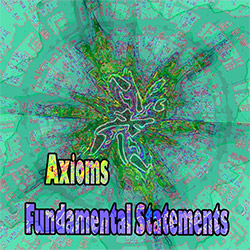

![Belorukov, Ilia / Alex Riva: Wrestling For Futility [CASSETTE w/DOWNLOAD]](https://www.teuthida.com/productImages/misc4/36994.jpg)


![Genthon, Anouck / Lionel Marchetti: Suite Blanche [2 CDs]](https://www.teuthida.com/productImages/misc4/36642.jpg)
![Toeplitz, Kasper T.: Erosions Programmees [CD + BOOKLET]](https://www.teuthida.com/productImages/misc4/36639.jpg)
![Gate, The : Almost Live [CASSETTE + MAGAZINE]](https://www.teuthida.com/productImages/misc4/36836.jpg)






![A Magic Whistle: The Solar Cell [VINYL]](https://www.teuthida.com/productImages/misc4/36658.jpg)

![McGee, Hal: Columbus Expedition [Cassette w/ Download]](https://www.teuthida.com/productImages/misc4/36650.jpg)


![Jaeger, Kassel: Fernweh [VINYL 2 LPs]](https://www.teuthida.com/productImages/misc4/36541.jpg)





![Frey, Jurg : Composer, Alone [3 CDs]](https://www.teuthida.com/productImages/misc4/36927.jpg)








![Frey, Jurg with ensemble]h[iatus: Je Laisse A La Nuit Son Poids D](https://www.teuthida.com/productImages/misc4/36988.jpg)




![Pisaro-Liu, Michael: Within (2) / Appearance (2) [2 CDs]](https://www.teuthida.com/productImages/misc4/36831.jpg)










![Musicworks Magazine: #151 Summer 25 [MAGAZINE + CD]](https://www.teuthida.com/productImages/misc4/36559.jpg)

![Brown, Dan / Dan Reynolds: Live At The Grange Hall [unauthorized][CASSETTE]](https://www.teuthida.com/productImages/misc4/36245.jpg)



![Zorn, John: The Song of Songs [CD + CD BOOK]](https://www.teuthida.com/productImages/misc4/36923.jpg)

![Coultrain: Mundus [COLORED VINYL]](https://www.teuthida.com/productImages/misc4/33056.jpg)
![Hprizm: Signs Remixed [COLORED VINYL]](https://www.teuthida.com/productImages/misc4/30635.jpg)
![Halls Of the Machine: All Tribal Dignitaries [CASSETTE w/ DOWNLOAD]](https://www.teuthida.com/productImages/misc4/36134.jpg)



![Koenjihyakkei: Live at Club Goodman [2 CDs]](https://www.teuthida.com/productImages/misc4/36111.jpg)

![Sorry For Laughing (G. Whitlow / M. Bates / Dave-Id / E. Ka-Spel): Rain Flowers [2 CDS]](https://www.teuthida.com/productImages/misc4/35985.jpg)

![Rolando, Tommaso / Andy Moor : Biscotti [CASSETTE w/ DOWNLOADS]](https://www.teuthida.com/productImages/misc4/36106.jpg)


![Electric Bird Noise / Derek Roddy: 8-10-22 [CD EP]](https://www.teuthida.com/productImages/misc4/35970.jpg)








![Elephant9 : Mythical River [VINYL]](https://www.teuthida.com/productImages/misc4/34624.jpg)



![Elephant9 with Terje Rypdal: Catching Fire [VINYL 2 LPs]](https://www.teuthida.com/productImages/misc4/35355.jpg)
![Coley, Byron: Dating Tips for Touring Bands [VINYL]](https://www.teuthida.com/productImages/misc4/17906.jpg)

![Lost Kisses: My Life is Sad & Funny [DVD]](https://www.teuthida.com/productImages/misc4/lostKissesDVD.jpg)